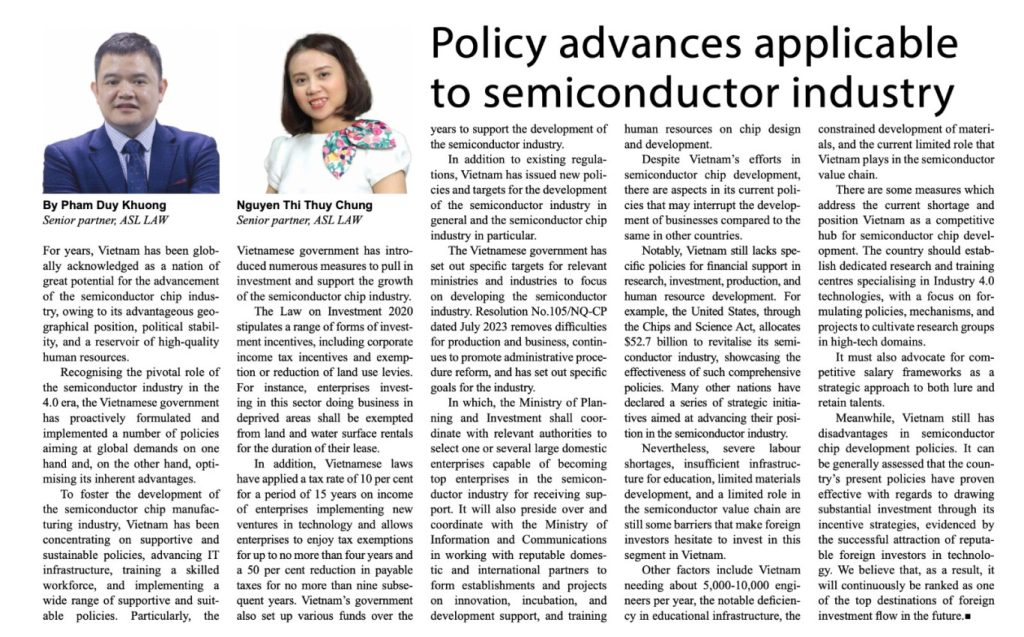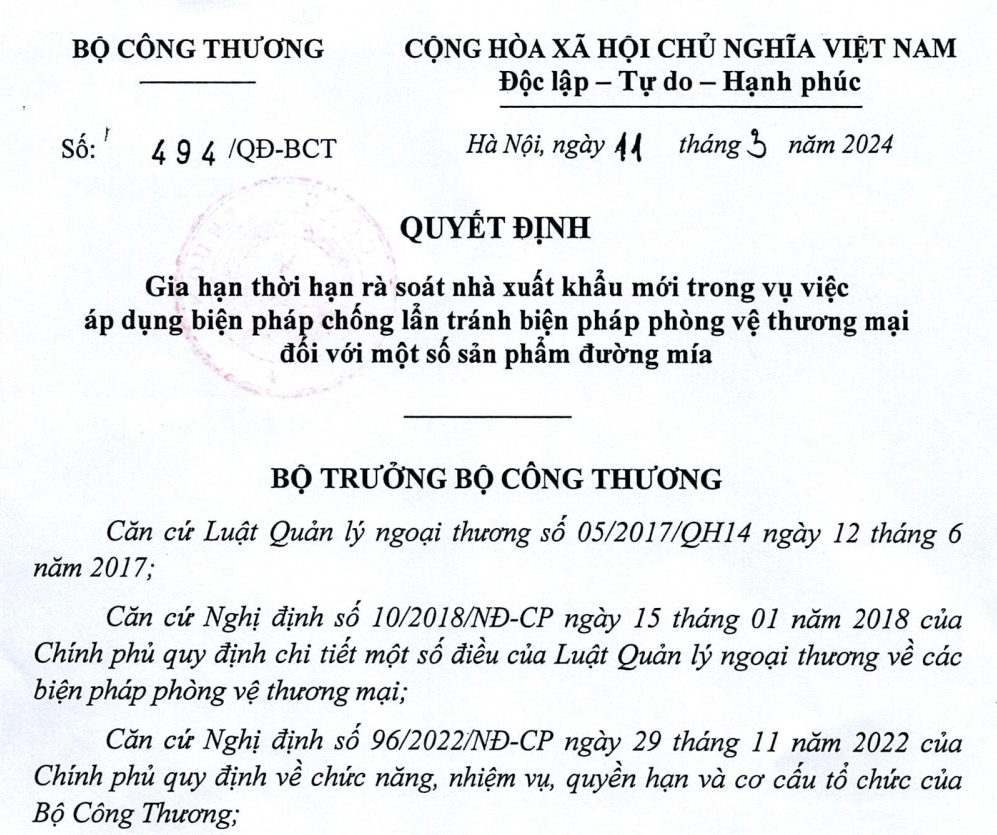Investing abroad can be a strategic move for businesses looking to expand their operations and tap into new markets. However, the process of transferring investment capital abroad is governed by strict regulations aimed at maintaining financial stability and transparency. In Vietnam, these regulations are outlined in both the Investment Law and related government decrees. Understanding…
Currently, the United States Department of Commerce is considering recognizing 11 countries as market economies, including Belarus, Georgia, Kyrgyzstan, China, Armenia, Azerbaijan, Moldova, Tajikistan, Uzbekistan, Vietnam, and Turkmenistan. Understanding the method by which the United States confirms market economy status would be beneficial for Vietnam, providing a basis for the country to make necessary changes…
(Published in Vietnam Investment Review) For years, Vietnam has been globally acknowledged as a nation of great potential for the advancement of the semiconductor chip industry, owing to its advantageous geographical position, political stability, and reservoir of high-quality human resources. Recognizing the pivotal role of the semiconductor industry in the 4.0 era, the Vietnamese government…
The Vietnamese government has taken a significant step towards enhancing transparency and efficiency in Bidding processes with the issuance of Decree No. 24/2024/ND-CP. This decree, which provides detailed guidelines for the implementation of the Bidding Law, aims to improve the selection of contractors and ensure compliance with legal requirements. Under the provisions of the new…
The Ministry of Construction in Vietnam has unveiled a draft decree aimed at guiding the implementation of the recently enacted Law on Real Estate Business. With the law set to take effect from January 1, 2025, the draft decree is a crucial step towards ensuring compliance and establishing a robust legal framework for the management…
Deputy Prime Minister Le Minh Khai has taken a significant step towards bolstering Vietnam’s commitment to combat money laundering, terrorist financing, and the proliferation of weapons of mass destruction. On February 23, a decision was signed to promulgate the national action plan aimed at implementing the Government’s pledge in this crucial area. The primary objective…
The most significant difference between branches and representative offices lies in their legal nature and financial responsibilities. In terms of nature, a branch is considered a part of the parent company and can conduct direct business transactions, while a representative office is merely a legal representative without legal status and cannot engage in direct business…
Establishing a representative office in Vietnam is a crucial step for businesses to expand their operations and establish a presence in key target countries. The following article will highlight the points that businesses need to consider regarding the establishment procedures for opening representative office in Vietnam. Documentation Requirements for Establishing Representative Offices in Vietnam Article…
A representative office is a familiar legal concept for international businesses wishing to expand their operations to other countries. The following article will outline the fundamental factors regarding opening representative office in Vietnam. Representative Office A representative office is a dependent unit of an enterprise, responsible for representing and protecting the interests of the enterprise,…
On March 11, 2024, the Ministry of Industry and Trade of Vietnam issued Decision No. 494/QD-BCT regarding the extension of the deadline for reviewing new exporters in the application of anti-circumvention measures on certain sugar products. This decision was made in accordance with the provisions of Articles 82 and 90 of the Law on Foreign…

 Tiếng Việt
Tiếng Việt 中文 (中国)
中文 (中国) 日本語
日本語










